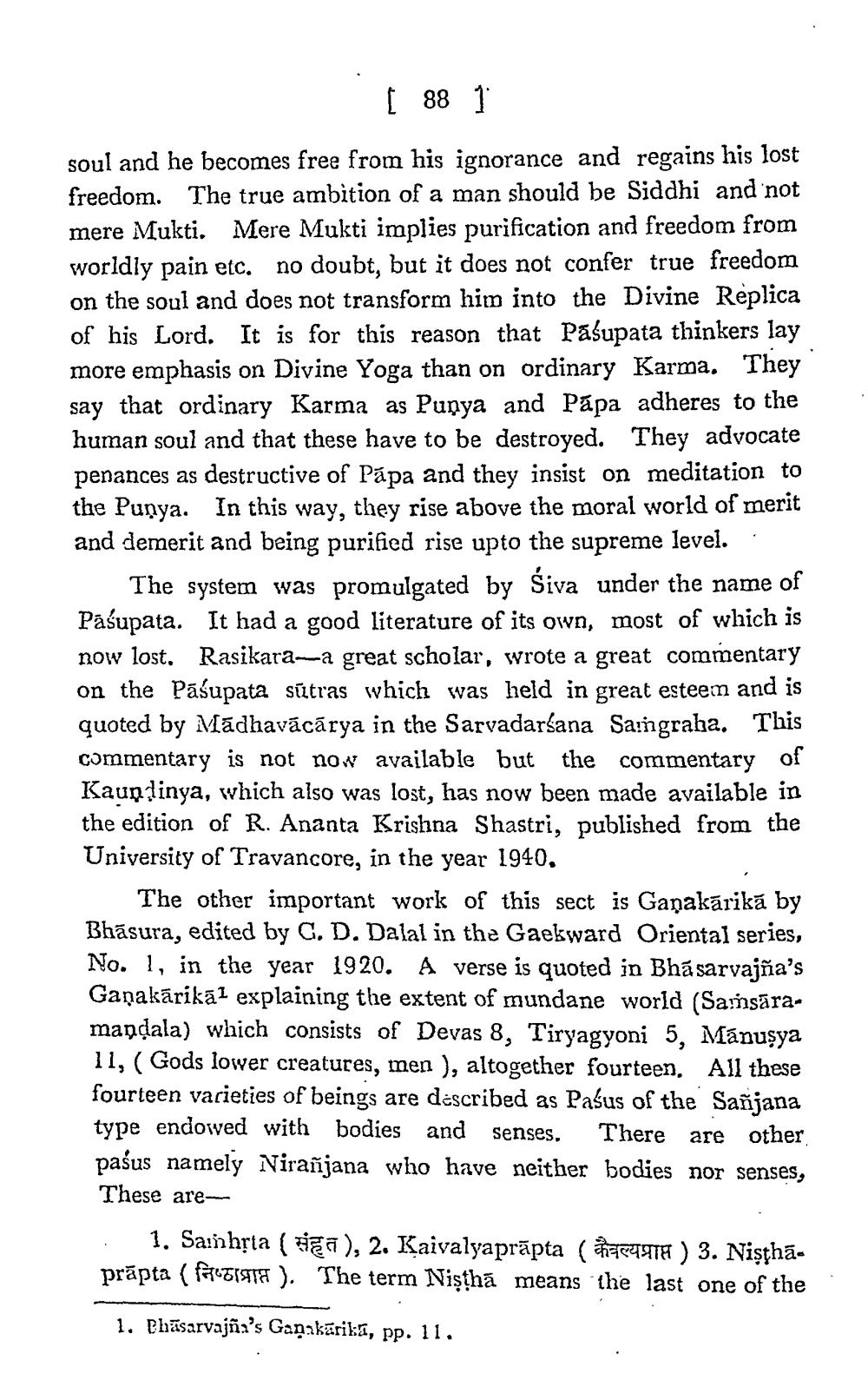________________
[
88
1
soul and he becomes free from his ignorance and regains his lost freedom. The true ambition of a man should be Siddhi and not mere Mukti. Mere Mukti implies purification and freedom from worldly pain etc. no doubt, but it does not confer true freedom on the soul and does not transform him into the Divine Replica of his Lord. It is for this reason that Pasupata thinkers lay more emphasis on Divine Yoga than on ordinary Karma. They say that ordinary Karma as Punya and Pápa adheres to the human soul and that these have to be destroyed. They advocate penances as destructive of Pápa and they insist on meditation to the Punya. In this way, they rise above the moral world of merit and demerit and being purified rise upto the supreme level.
The system was promulgated by Śiva under the name of Pāśupata. It had a good literature of its own, most of which is now lost. Rasikarama great scholar, wrote a great commentary on the Pāśupata sūtras which was held in great esteem and is quoted by Madhavácārya in the Sarvadarśana Sangraha. This commentary is not now available but the commentary of Kauplinya, which also was lost, has now been made available in the edition of R. Ananta Krishna Shastri, published from the University of Travancore, in the year 1940,
The other important work of this sect is Ganakariká by Bhāsura, edited by C. D. Dalal in the Gaekward Oriental series, No. 1, in the year 1920. A verse is quoted in Bhā sarvajña's Gaņakārikāl explaining the extent of mundane world (Sainsāra. mandala) which consists of Devas 8, Tiryagyoni 5, Mánuşya 11, (Gods lower creatures, men ), altogether fourteen. All these fourteen varieties of beings are described as Pašus of the Sañjana type endowed with bodies and senses. There are other paśus namely Nirañjana who have neither bodies nor senses, These are
1. Sanhặta ( a), 2. Kaivalyaprāpta ( 441 ) 3. Nişghā. prāpta ( Fregista). The term Nişthā means the last one of the 1. Phāsarvajña's Gañakārika, pp. 11.




